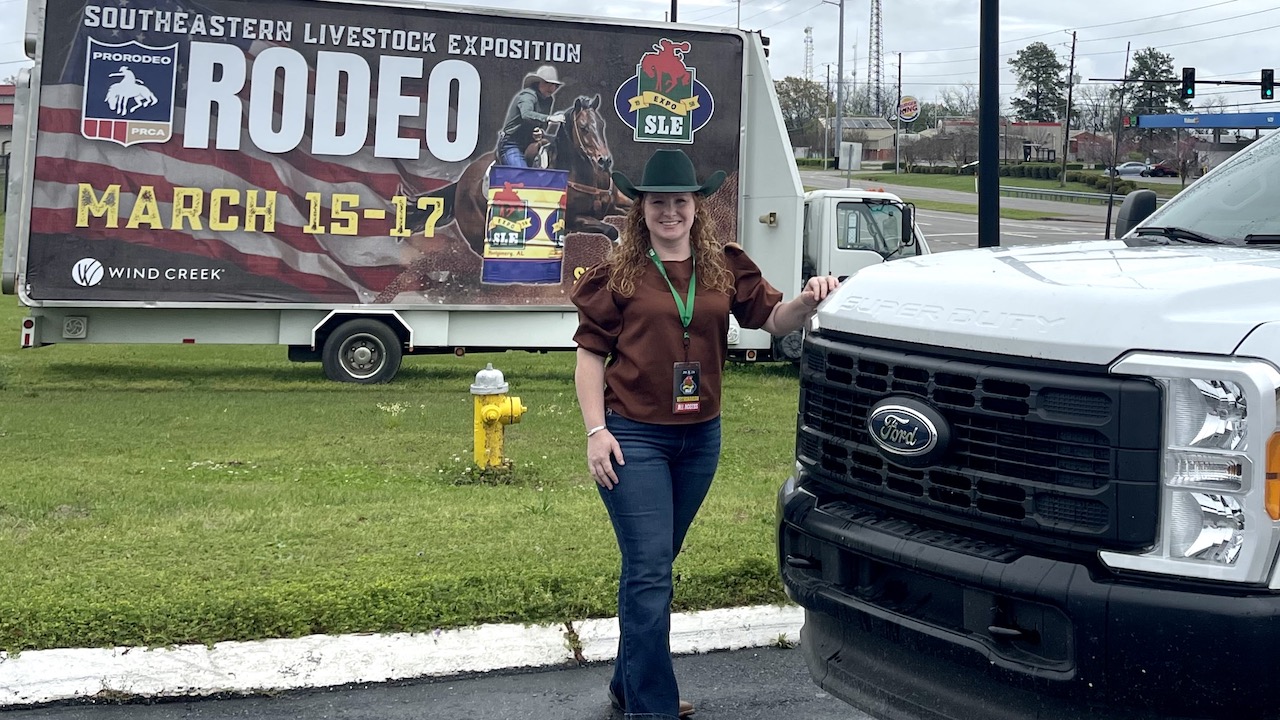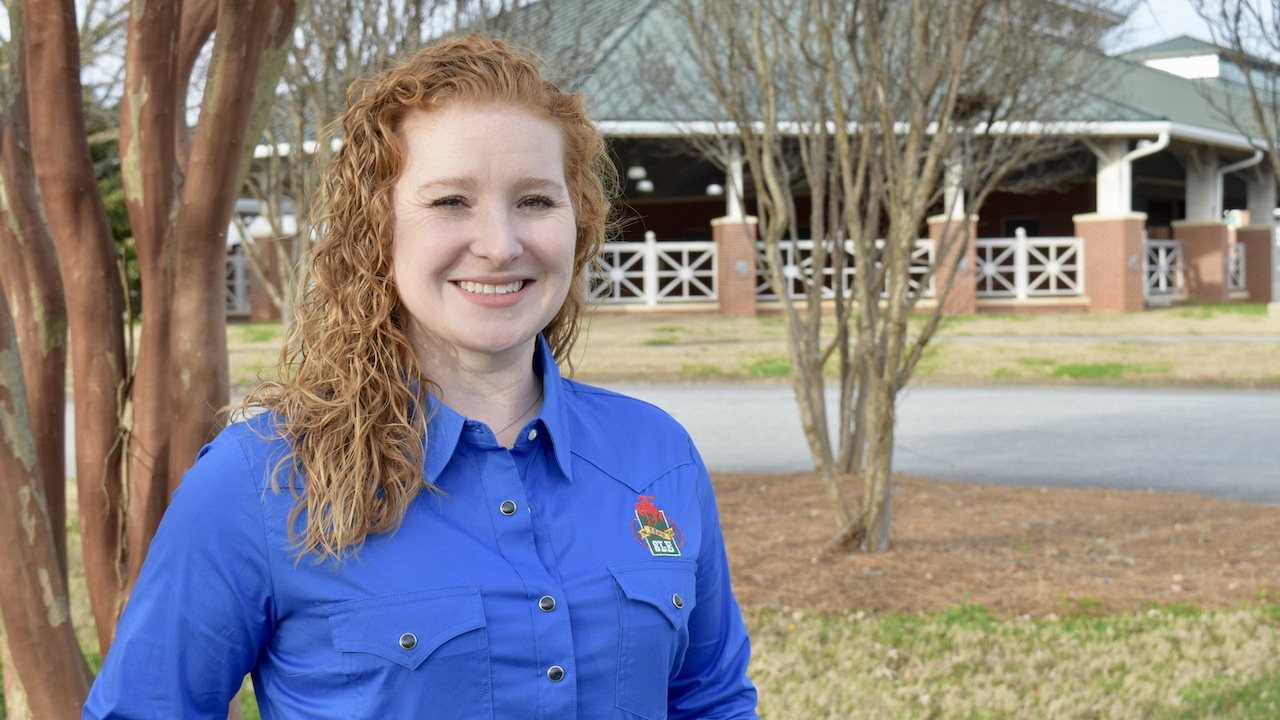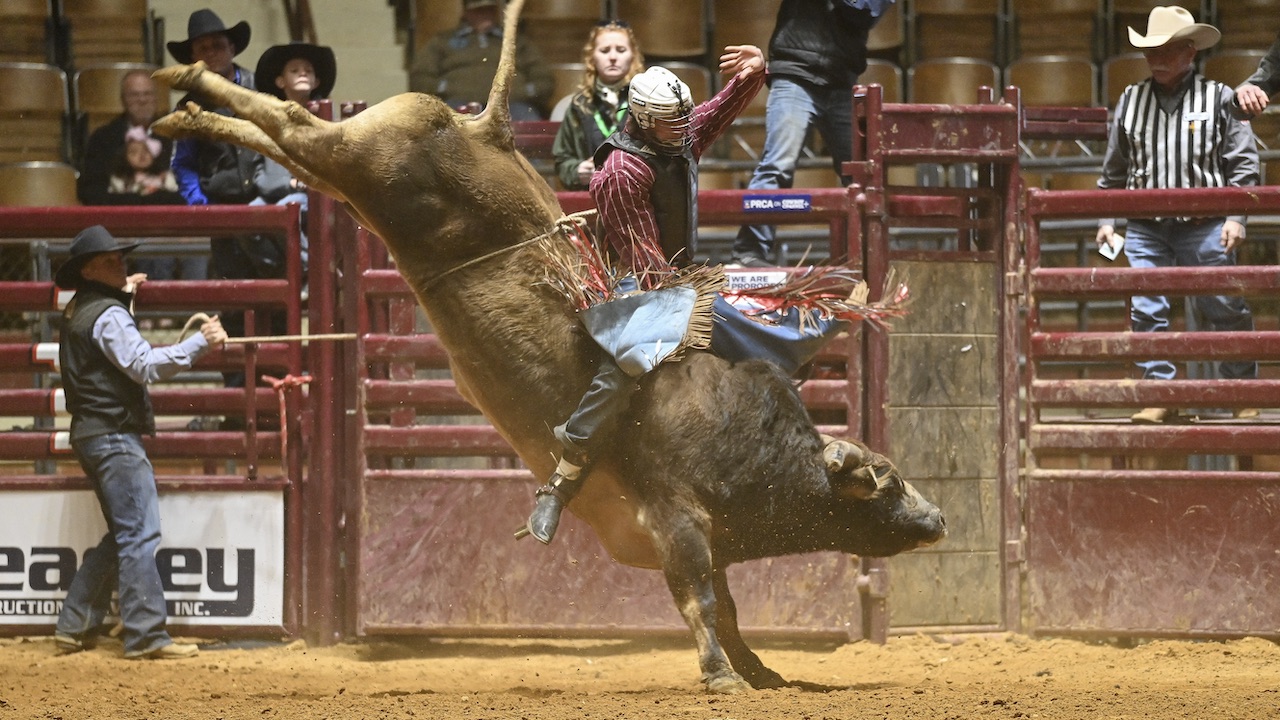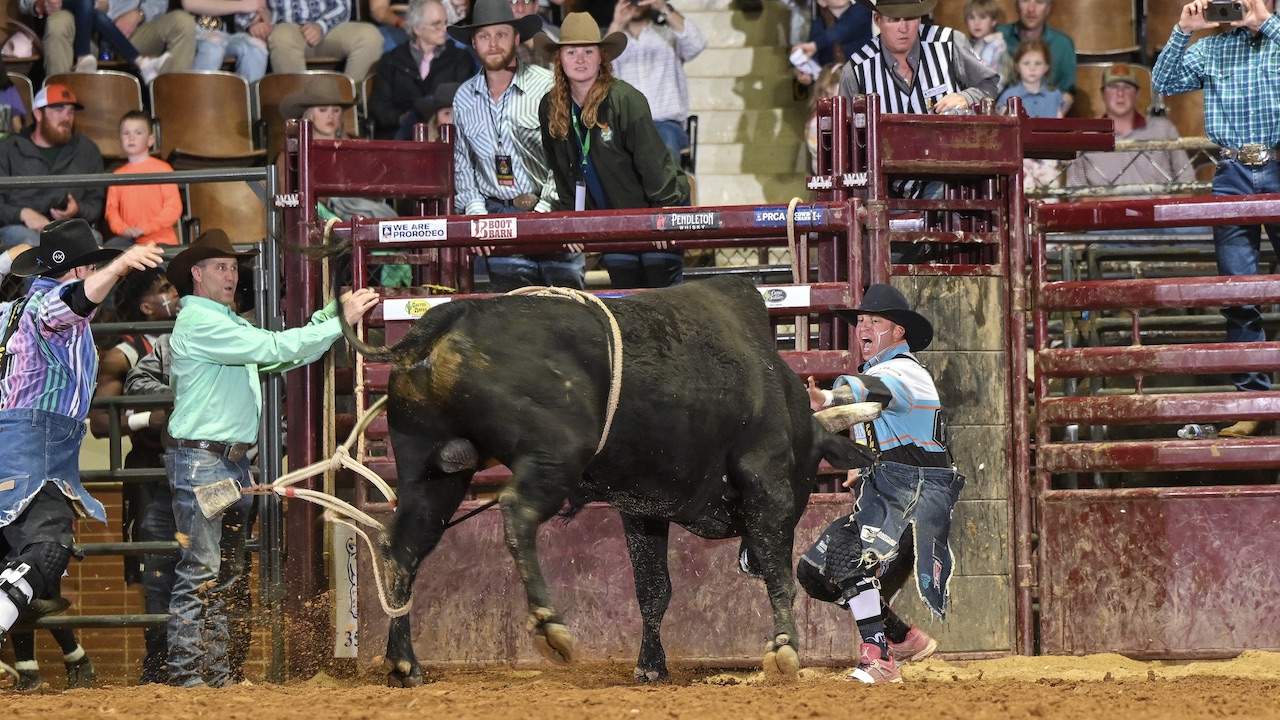content body
For Auburn University’s Dr. Jessica Rush, there’s nothing like the thrill of being behind the bucking chutes during the bull riding at the annual Southeastern Livestock Exposition (SLE) Rodeo in Montgomery’s historic Garrett Coliseum.
Rush, an assistant clinical professor of food and fiber animal medicine and alumna of the College of Veterinary Medicine (CVM), serves as the SLE Rodeo’s official veterinarian, regularly getting an up-close view of human and animal athletes at work.
She said the experience brings back childhood memories.

Auburn University alumna and Clinical Assistant Professor Jessica Rush pictured in front of Montgomery’s Garrett Coliseum for the 2024 SLE Rodeo.
Roots in the rodeo
“I have always loved rodeos. The SLE was the first rodeo I ever attended while showing cattle as a child,” Rush said. “One of my mentors was a member of SLE. Through him, I saw all the great things the organization did, especially for the youth. When I was given the opportunity to be an SLE member and rodeo veterinarian, it seemed like a way to honor him while making a difference for the youth and community.”
SLE’s executive director, Sarah Hunter, said the rodeo is proud to have such a high-caliber large animal veterinarian providing care as animal welfare is of the utmost importance to the SLE and Professional Rodeo Cowboys Association (PRCA).
“The Southeastern Livestock Exposition is a nonprofit organization and relies heavily on the support from volunteers,” Hunter added. “We are so grateful that Dean Calvin Johnson sees value in our mission and allows Dr. Rush to represent Auburn’s CVM while serving as the official SLE Rodeo vet every March.”

Auburn University alumna and Clinical Assistant Professor Jessica Rush pictured in front of the JT Vaughan Large Animal Teaching Hospital.
Auburn education, experience instills confidence
Rush is the SLE Rodeo’s first female veterinarian. To the job, she brings advanced veterinary training and years of experience. After earning her doctorate in veterinary medicine from the university in 2010, Rush worked in a rural practice in Ashland, Alabama, for five years.
She then returned to Auburn for a residency in theriogenology, or reproductive health and surgery. She now holds board certification in theriogenology and is interested in reproductive, medical and surgical conditions of food animals.
In addition to being an active member of both the SLE and Alabama Cattlemen’s Association, Rush organizes outreach events with several cattlemen’s associations through Auburn’s CVM. She also serves as advisor for the university’s American Association of Bovine Practitioners club.
Rush said her clinical experience with horses and cattle gave her the confidence to accept the position as veterinarian for the SLE Rodeo.
Rush’s rodeo responsibilities
According to Hunter, the SLE Rodeo ranks among the top 10% of over 700 PRCA rodeos held in the United States. The 2024 event took place March 15-17.
Each year, Rush gets to work before the rodeo begins and helps the rodeo officials inspect the grounds.
“Checking for potential sites where an animal could be injured lessens the possibility of injuries occurring,” she said.
Rush also is involved in developing the rodeo’s triage and worst-case-scenario plans.
During the rodeo, Rush said, she can be found “doing anything from making coffee for the PRCA contestants in cowboy hospitality to treating animals.”
“I treat minor injuries or illnesses on site, and I’m responsible for coordinating transportation to the veterinary teaching hospital if the injury is significant,” she said. “I’m on call for all participants in every event for animal care. This provides comfort for the owners, knowing care is available.”
Rush’s favorite part of the job?
“The opportunity to treat and care for these incredible animals and give advice to their handlers on best practices,” she said.

Auburn University alumna and Clinical Assistant Professor Jessica Rush overlooks the action at the 2024 SLE Rodeo.
Caring for young people, too
Rush also enjoys interacting with young people who attend the event.
“During the rodeo festivities, there are livestock shows, livestock judging and youth rodeo,” she said.
“Young people can learn many things through livestock, including hard work, discipline, responsibility, how to win or lose gracefully and how to handle disappointment,” Rush added. “They also learn about animal husbandry, animal health and the food supply.”
Rush’s involvement with these youngsters gives her the chance to offer her encouragement — and to “maybe recruit the next generation of Auburn veterinarians,” she said.
In the future, Rush would like to bring Auburn veterinary medicine students with her to the rodeo.
“The SLE Rodeo,” she said, “is a great opportunity for our students to get experience with caring for horses, cattle, bulls and other animals in a way that they may not have had otherwise.”





